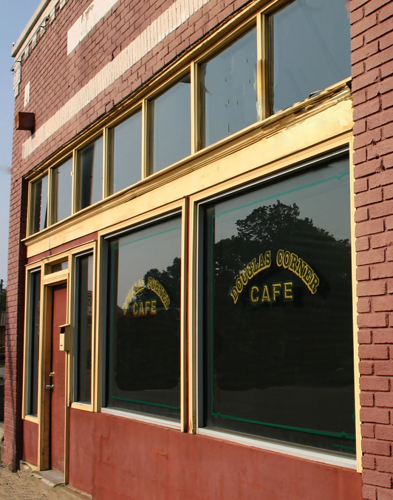
What I remember best about hanging out at Douglas Corner, the venerable Nashville listening room that closed in May after 33 years in business, isn’t the many big-time stars who played there. Yes, the cozy space on Eighth Avenue South hosted performers like Garth Brooks, Trisha Yearwood and Guy Clark, but I have never felt comfortable at industry-sanctioned shows. I don’t recall catching Garth at Douglas Corner. Certainly, seeing the future megastar at a tiny venue in the late ’80s would have been something to remember.
The performers I did see at Douglas Corner weren’t always big stars, and that’s why I loved the place and feel a huge sense of loss at its passing. Douglas Corner began its life in 1987, when former recording engineer Mervin Louque started it with businessman Rick Martin. Born in Baton Rouge, La., Louque came to Nashville in 1974, and he joined Fanta Professional Services, a company that recorded live albums by the likes of The Charlie Daniels Band and soul singer Millie Jackson. In 1976 Louque helped build the Fanta Mobile Recording Studio to capture live performances. He installed the studio at Douglas Corner in 1996, dubbing it The Ugly Truckling.
Guy Clark’s 1997 album Keepers was recorded at Douglas Corner with The Ugly Truckling, but I never saw Clark or many singer-songwriters there. As I mentioned, I get nervous at music-business affairs. For me and my friends, Douglas Corner was where we sent to see the soul and R&B greats we idolized.
For example, late Alabama singer, songwriter and keyboardist Donnie Fritts played an annual wintertime gig at the venue for about a decade, with the final show circa 2012. In particular, I remember the compelling performance he gave around Christmas in 2009. Fritts, who penned soul and pop songs like the 1968 Box Tops single “Choo Choo Train,” also acted in Sam Peckinpah movies and played in Kris Kristofferson’s band. The shows felt casual, but they afforded me a glimpse into a vanishing world. Backing him up were The Decoys, a superb Alabama group that includes legendary Muscle Shoals bassist David Hood and ace guitarist Kelvin Holly. They laid down a ferocious groove — it was like seeing some down-home amalgam of The Ohio Players and The Rolling Stones.
It was likely you’d run into some of Nashville’s greatest performers and songwriters at Fritts’ shows. I heard Billy Swan, Dan Penn and the late Tony Joe White, all of whom seemed to be in their natural element at Douglas Corner. One night, feeling confident after a few beers and one of the club’s delicious soft pretzels, I slid into Penn’s booth and asked him about a 1969 track he’d cut in Memphis with rocker Dale Hawkins, “Little Rain Cloud.” The wheels turned in Penn’s head, and he told me about making the record.
That’s the kind of place Douglas Corner was: hip, relaxed and high-level. I never felt like an outsider there. I liked the way it was set up, with booths and tables in front and the bar and another table or two toward the back. On the other hand, it was hard not to think of yourself as an insider when you were talking to musicians on the level of Penn and Fritts. The performers and audience seemed to exist on the same plane.
I miss seeing Nashville singer and producer Rob Galbraith’s biannual shows, which were loose and very funky. Galbraith’s band featured drummer Chester Thompson, who brought a jazzy touch to Galbraith’s R&B-influenced songs. Galbraith would crack jokes in his Tennessee-hipster drawl, and his band would swing just as hard as The Decoys did.
Douglas Corner had an old-school feel that always put me in mind of an earlier, cooler Nashville. I felt at home the minute I walked through the door. Just maybe, there was a moment or two during the many hours I spent there when I really was an insider.






